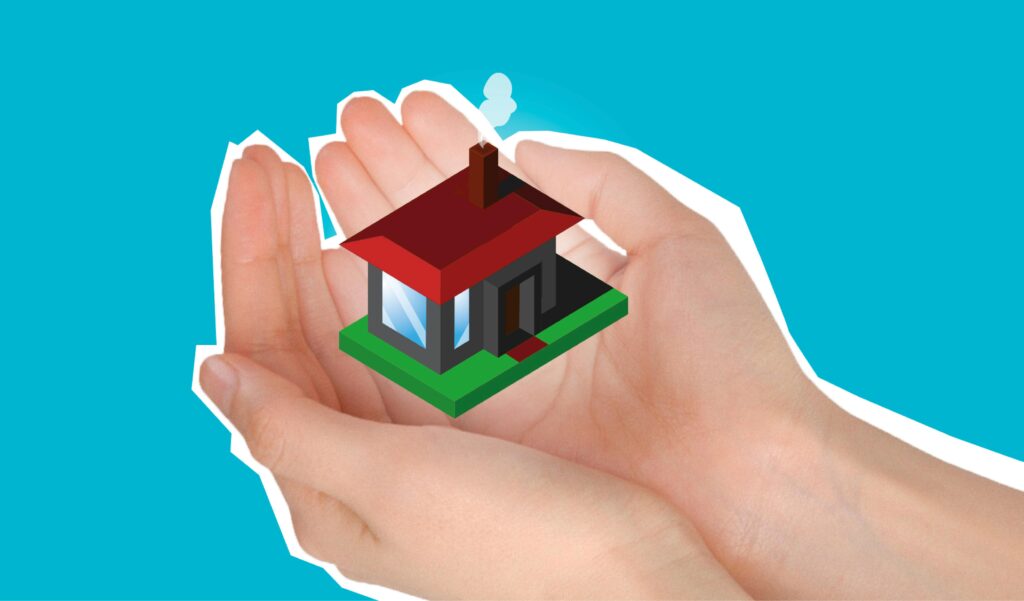
As you settle into the comfort of your home, it’s natural to want to ensure that your haven remains safe and secure. While you take measures to maintain your property, unforeseen events like natural disasters or accidents can still pose significant threats. This is where home insurance comes into play – offering financial protection and peace of mind. In this guide, we’ll delve into the basics of home insurance to help you understand its importance and make informed decisions to safeguard your dwelling.
Understanding Home Insurance:
Home insurance, also known as homeowner’s insurance or property insurance, is a policy that provides coverage for your home and its contents in case of damage or loss due to covered events. These events typically include natural disasters like earthquakes, floods, or wildfires, as well as accidents such as fire outbreaks or theft. Additionally, home insurance may offer liability protection, covering legal expenses if someone is injured on your property.
Types of Home Insurance Coverage:
Dwelling Coverage: This component of home insurance protects the structure of your house, including walls, roof, floors, and attached structures like garages or decks. It typically covers damage caused by fire, windstorms, lightning, vandalism, and more.
Personal Property Coverage: Personal property coverage reimburses you for the cost of replacing or repairing personal belongings damaged or stolen during covered events. This includes furniture, appliances, clothing, electronics, and other items within your home.
Liability Coverage: Liability coverage safeguards you financially if someone is injured on your property and sues you for damages. It helps cover legal fees, medical expenses, and court awards in such cases.
Additional Living Expenses (ALE) Coverage: If your home becomes uninhabitable due to a covered event, ALE coverage reimburses you for the additional expenses of living elsewhere temporarily. This may include hotel bills, restaurant meals, and other necessary costs.
Factors Affecting Home Insurance Premiums:
Several factors influence the cost of home insurance premiums, including:
Location: Properties located in areas prone to natural disasters or high crime rates may have higher premiums.
Construction Materials: The type of materials used in constructing your home, such as brick, wood, or concrete, can impact insurance costs.
Home’s Age and Condition: Older homes or those in poor condition may have higher premiums due to increased risk of damage.
Security Measures: Installing security systems, smoke detectors, and fire alarms can lower insurance premiums by reducing the risk of theft or fire damage.
Coverage Limits and Deductibles: Higher coverage limits and lower deductibles typically result in higher premiums.
Tips for Choosing Home Insurance:
Assess Your Needs: Evaluate the value of your home and possessions to determine the amount of coverage you need.
Shop Around: Obtain quotes from multiple insurance providers to compare coverage options and premiums.
Review Policy Exclusions: Understand what events are covered and excluded from your policy to avoid surprises during a claim.
Consider Additional Coverage: Depending on your location and specific needs, you may require additional coverage for flood, earthquake, or expensive valuables not fully covered by standard policies.
Bundle Policies: Bundling your home insurance with other policies like auto insurance can often result in discounts from insurance companies.
The Claims Process:
In the unfortunate event of damage to your home or belongings, filing a claim with your insurance provider is the first step towards recovery. The claims process typically involves:
Reporting the Incident: Contact your insurance provider as soon as possible to report the damage and initiate the claims process.
Documentation: Document the damage by taking photographs or videos as evidence to support your claim.
Assessment: An insurance adjuster will assess the damage and estimate the cost of repairs or replacement.
Resolution: Once the claim is approved, you’ll receive compensation based on your policy coverage and deductible.
Conclusion:
Home insurance is not just a legal requirement in many cases; it’s a vital safeguard for protecting your most significant investment – your home. By understanding the basics of home insurance, evaluating your needs, and choosing the right coverage, you can ensure that your haven remains protected against life’s uncertainties. Remember, the peace of mind offered by home insurance is
priceless, making it a wise investment for every homeowner.
Whether you’re a new homeowner or looking to reassess your existing policy, prioritize securing comprehensive home insurance coverage to safeguard your dwelling and everything within it. After all, home is where the heart is, and it deserves the utmost protection.
ZZ recommends that you look 360 degrees before choosing an insurance company for your home. If you would like ZZ to recommend an independent Insurance agent who could give you several competing offers from various companies, please give ZZ a call at (808) 378 5570
Follow Us for More Updates:- Facebook
READ MORE BLOGS:- BLOG

